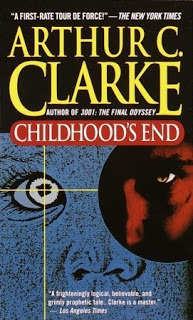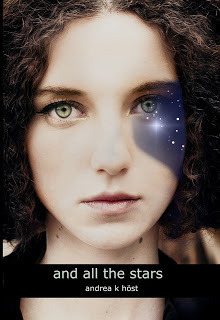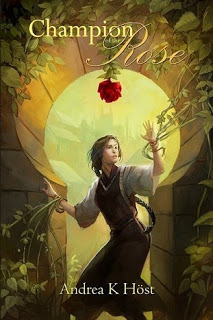date newest »
newest »
 newest »
newest »
message 1:
by
Anna
(new)
Apr 13, 2013 05:38PM
 I've been thinking about this post since you wrote it & meaning to reply - I think there is a huge confusion in people's minds about what is SF and what is Fantasy. I have dark suspicions that girlier books tend to be seen as fantasy, and your Champion of the Rose is a great example there, because the way I related to your rose while I was reading it was as a computer run amok, following its set program to the bitter end. You could have written the exact same book but had a noun more masculine than a rose running things & I think a lot more people would have picked up on its SF aspects. But I think there is non-gendered confusion as well - I remember Charles Stross once writing that people had his two main series (at the time) completely backwards, that they saw his Singularity series as SF while it was actually fantasy and his Merchant series as fantasy while it was actually (social) science fiction. They got confused by the props. There are so many books I love that blend SF and Fantasy, like Sheri Tepper for example, I really hope the genre grows up enough to accept how it is evolving. The latest Hugo brouhaha doesn't have me too hopeful about that but I suppose the main thing is that amazing books continue to be written and read.
I've been thinking about this post since you wrote it & meaning to reply - I think there is a huge confusion in people's minds about what is SF and what is Fantasy. I have dark suspicions that girlier books tend to be seen as fantasy, and your Champion of the Rose is a great example there, because the way I related to your rose while I was reading it was as a computer run amok, following its set program to the bitter end. You could have written the exact same book but had a noun more masculine than a rose running things & I think a lot more people would have picked up on its SF aspects. But I think there is non-gendered confusion as well - I remember Charles Stross once writing that people had his two main series (at the time) completely backwards, that they saw his Singularity series as SF while it was actually fantasy and his Merchant series as fantasy while it was actually (social) science fiction. They got confused by the props. There are so many books I love that blend SF and Fantasy, like Sheri Tepper for example, I really hope the genre grows up enough to accept how it is evolving. The latest Hugo brouhaha doesn't have me too hopeful about that but I suppose the main thing is that amazing books continue to be written and read.
reply
|
flag
 Definitely a combination of factors working together to create these perceptions. I take all awards with a grain of salt, but they do make nice discussion starters.
Definitely a combination of factors working together to create these perceptions. I take all awards with a grain of salt, but they do make nice discussion starters.A lot of the Hugo stuff seems related not to the novel category, but some extreme repetition in the fanzine area. As for the novel finalists, it was interesting to see how many people dismissed the finalists without having actually read the particular books involved - they'd read one or two other books by that author (if any) and decided apparently that all their books were the same? Or something.
 Yes, as if the Newsflesh trilogy is somehow fantasy just because other books McGuire has written have elves in them. I really think that one is a matter of her gender clouding people's brains - the Newsflesh books involve so much biology it's hard to see how anyone couldn't recognize that unless they are letting bias cloud their minds.
Yes, as if the Newsflesh trilogy is somehow fantasy just because other books McGuire has written have elves in them. I really think that one is a matter of her gender clouding people's brains - the Newsflesh books involve so much biology it's hard to see how anyone couldn't recognize that unless they are letting bias cloud their minds.






